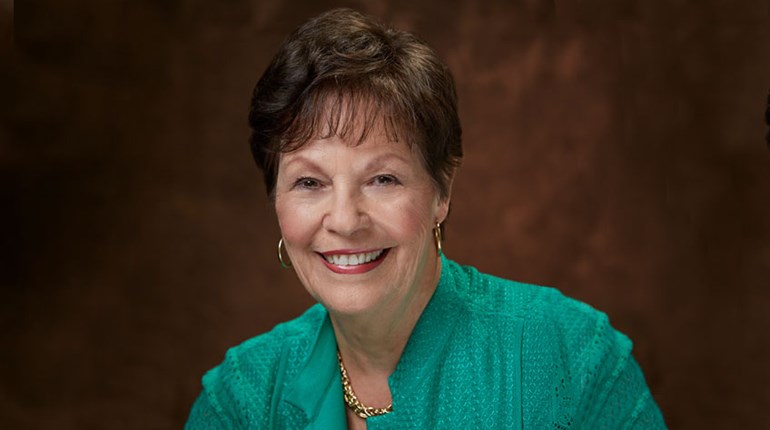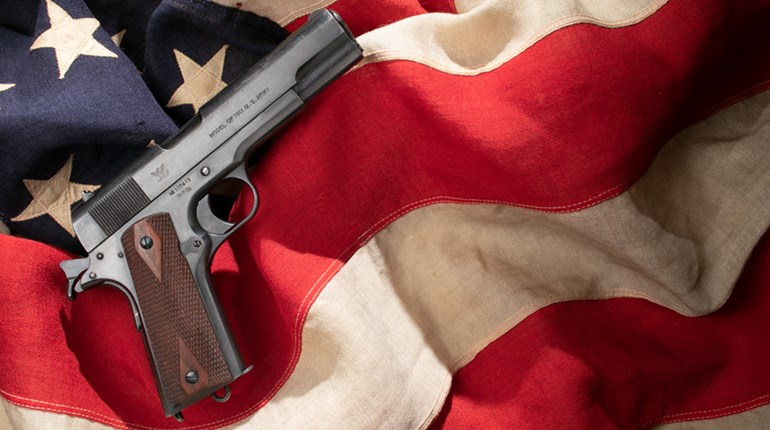
Just as the Big Three broadcast television networks—ABC, CBS and NBC—used to control what news was delivered into our living rooms, now a handful of tech companies have the power to determine which news articles you read, which friends’ social-media posts you see and even which political candidate’s ads show up when you search for information about the next election.
The thought of a few tech oligarchs amplifying political commentary they agree with, while muting what they find detestable, isn’t just the stuff of dystopian novels anymore. Time and again, there are indications that Facebook, Google, YouTube and Twitter have moved to help anti-gun causes and to hide gun-rights ones.
In 2016, some unnamed former Facebook contractors told the tech site Gizmodo that Facebook “routinely suppressed news stories of interest to conservative readers.” This included blocking topics from appearing on the trending-news list, including news about the late Navy SEAL Chris Kyle, the pro-freedom writer who wrote American Sniper, and pro-Second Amendment U.S. Sen. Ted Cruz (R-Texas).

Jen Gennai, an executive at Google, which owns close to 90% of the search market, was caught by Project Veritas saying Google “is bent on never letting somebody like [President] Donald Trump come to power again.” Trump has, of course, run a pro-Second Amendment administration.
Gennai also said Google’s size is what makes it so important, since smaller companies “charged with preventing the next Trump situation” wouldn’t be able to pull it off.
Undercover video showing Gennai talking about using Google’s market power to suppress views it doesn’t like was subsequently removed by YouTube, a Google subsidiary.
In another example, following a school shooting in Florida in 2018, Google refused to produce results for any shopping queries using the word “gun.” As a result, Google didn’t just disenfranchise anyone who might be interested in protecting themselves or their families with a firearm, it also left fans of the fighter pilot movie “Top Gun,” the Indianapolis Colts and the band Velvet Revolver scratching their heads about the lack of any search results.
Complaints against YouTube for blacklisting and censoring political content that conflicts with its employees’ political views are also well-founded; for example, the video-sharing company censored nearly two dozen videos from PragerU, an online educational resource founded by conservative talk-radio host Dennis Prager. YouTube hasn’t, however, taken down a video from PragerU on gun control titled “What Should We Do About Guns?”
Not to be left out, Twitter has also banned and censored accounts. Most recently, Twitter blocked John Lott, the founder and CEO of the Crime Prevention Research Center (CPRC), for sending a tweet about the New Zealand killer’s real political views.
My reporting on congressional testimony from a key federal law-enforcement figure involved in the FBI’s anti-Trump Russia investigation was also censored by Twitter. In an email sent days later detailing why a tweet citing a transcript from a congressional hearing on election interference was removed without notice or explanation, Twitter claimed that it was merely trying to “keep people safe on Twitter.” The company never explained how a transcript excerpt placed anyone in danger.
The bias is apparently so stifling at Twitter that even conservative employees who work for the San Francisco-based micro-blogging service are afraid to speak out for fear of reprisal.
“[T]o be honest, they don’t feel safe to express their opinions at the company,” Twitter chief executive Jack Dorsey said during a 2018 interview.
These overt attempts to control online political conversations should especially terrify gun owners. It is often said that the Second Amendment makes the First Amendment possible by affirming and protecting the right of Americans to protect themselves. Likewise, the First Amendment protects the Second Amendment from being watered down by politicians and judges who view the right to keep and bear arms as a barrier to plans for more government power. Federal judges who understand and respect the Constitution and the God-given rights it protects are made possible only by elected lawmakers who believe in those same rights. Those kinds of lawmakers, in turn, are only placed in office through free and fair elections in which citizens are able to speak their minds, organize as they see fit and mobilize likeminded individuals to vote.
The success of Second Amendment supporters is largely due to their use of the public square to persuade lawmakers to defend the right to keep and bear arms. Opponents of gun rights, having realized that they’ve lost the argument on the merits, are increasingly turning to censorship as their main weapon in the battle to disarm law-abiding gun owners all across the country.
What’s Government’s Role?
In late July, the Department of Justice levied a $5 billion fine against Facebook, less than 1% of its overall market cap, for misleading users about who was accessing their private information and for what purposes. Last January, the European Union fined Google for the search giant’s refusal to get the consent of its users to use their personal data for targeted advertising. Thus far, however, little formal action has been taken against the world’s biggest digital platforms for their efforts to suppress political speech.

Lawmakers in Washington, D.C., however, have now started to notice the threat tech monopolies pose to freedom in the U.S. Sens. Josh Hawley (R-Mo.) and Ted Cruz (R-Texas) recently sent a formal letter to the Federal Trade Commission, the government agency tasked with monitoring anti-competitive behavior, asking it to investigate how the major companies curated content and decided what information would be shown to users.
“Big tech companies like Google, Facebook and Twitter exercise enormous influence on speech,” the senators wrote. “The vast majority of internet traffic flows through just a handful of these companies. They control the ads we see, the news we read, and the information we digest. And they actively censor some content and amplify other content based on algorithms and intentional decisions that are completely nontransparent…. Never before in this country have so few people controlled so much speech. The possibilities for abuse in this area are alarming and endless…. By controlling the content we see, these companies are powerful enough to—at the very least—sway elections.”
President Donald J. Trump himself even took aim at social-media censorship, via a presidential summit at the White House in July, that featured multiple high-profile conservatives who had been censored or blacklisted by the big social-media companies because of their political views.
“I am continuing to monitor the censorship of AMERICAN CITIZENS on social media platforms,” Donald Trump tweeted. “This is the United States of America—and we have what’s known as FREEDOM OF SPEECH! We are monitoring and watching, closely!!”
If the right to keep and bear arms is essential to protect us from those who would harm us, the right to speak freely in public about politics is essential to protecting us from ideologies and individuals who seek to erode our liberties.
Some Are Trying to Control the Narrative
Fox News ended the monopoly on television news, and is now far and away the most-watched cable news outlet. As a result, some billionaires who back anti-gun politicians have dedicated millions of dollars to attacking both the network and its advertisers in a naked attempt to make it impossible for the network to stay on the air. Similarly, conservatives have been so successful in their use of social media to promote constitutional values that the Left has decided that any contrary viewpoints must be shouted down or blacked out, lest those viewpoints about basic rights to life and liberty, and the means to defend them, take root in the minds of the American people.
Clearly, the well-funded and orchestrated attempts to censor and blacklist conservatives from social media is a direct attack on the Second Amendment, as well as the First.
“[T]he chief danger to freedom of thought and speech at this moment is not the direct interference of the [Ministry of Information] or any official body,” the author George Orwell wrote in a 1972 op-ed. “If publishers and editors exert themselves to keep certain topics out of print, it is not because they are frightened of prosecution but because they are frightened of public opinion. In this country, intellectual cowardice is the worst enemy a writer or journalist has to face, and that fact does not seem to me to have had the discussion it deserves.”
“If liberty means anything at all, it means the right to tell people what they do not want to hear,” Orwell wrote. “It is only, or at any rate it is chiefly, the literary and scientific intelligentsia, the very people who ought to be the guardians of liberty, who are beginning to despise it, in theory as well as in practice.”
An expert on the totalitarian impulse to control a man’s every thought, Orwell might as well have been talking about the all-powerful tech oligarchs who now control the flow of information in the U.S. and the cowardly journalists who cheer on their censorship while claiming their love of freedom of speech is untainted.
The battle lines have been drawn and the social-media giants have made clear on which side they stand. The only question left for those who defend the right to keep and bear arms and the Constitution that affirms it is whether they plan to fight back. If the First Amendment falls, and along with it the culture that believes that the free exchange of ideas is a pillar of the American constitutional republic, the fall of the Second Amendment will not be far behind.


































